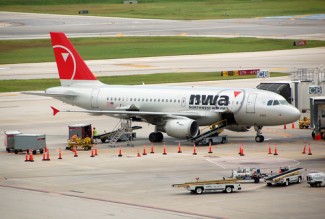SCOTUS rules against frequent flier suing over revocation of elite status
The U.S. Supreme Court has ruled against a frequent flier who sued after Northwest Airlines revoked his “platinum elite” status.
In a unanimous ruling (PDF) by Justice Samuel A. Alito Jr., the court ruled against Rabbi S. Binyomin Ginsberg of Minnesota on pre-emption grounds.
Ginsberg had filed a $5 million class action asserting that his elite status was eliminated as a cost-cutting measure tied to Northwest’s merger with Delta Air Lines. The airline, however, had alleged he made frequent complaints over a six-month period, including nine instances of his bag arriving late at the luggage carousel. A provision in Northwest’s frequent flier agreement allowed cancellation for abuse of the program, as determined by the airline.
Alito said the Airline Deregulation Act pre-empted Ginsberg’s state-law claim for breach of the implied covenant of good faith and fair dealing. The federal law provides that states can’t enforce laws, as well as provisions with the force and effect of law, that are related to a price, route or service of an air carrier.
Alito noted that most states recognize some form of the good faith and fair dealing doctrine, but the precise meaning varies by jurisdiction. In Minnesota, parties cannot contract out of the implied covenant. When state law does not authorize parties to free themselves from the covenant, a breach of covenant claim is pre-empted, Alito said, citing a 1995 decision.
Alito said the court’s ruling does not leave participants in frequent-flier programs without protections. Consumers will avoid programs with bad reputations, he said, and they may also complain to the Department of Transportation, which has general authority to prohibit and punish unfair and deceptive practices in air transportation.
The case is Northwest vs. Ginsberg.




